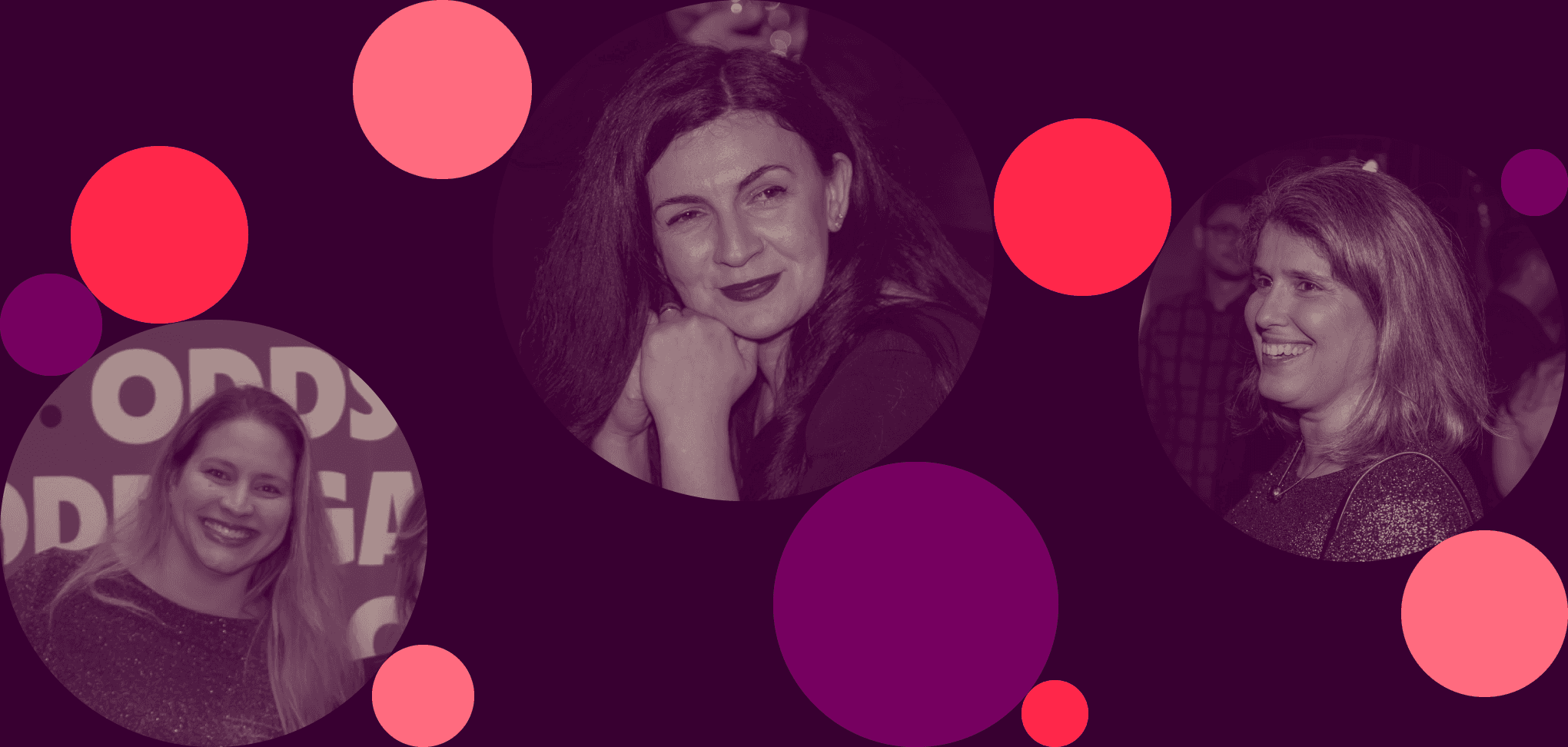Location
Subscribe to our newsletter

Ask a room to picture a surgeon, a lawyer, a CEO, or a leader. For a long time, the image rarely featured a woman. In iGaming, the gap is even wider. Yet the general picture is changing, not through slogans or spotlights, but through quieter revolutions: who speaks and who is heard, how decisions are made and remembered.
At Oddsgate, diversity is a practice as ordinary and necessary as version control.
Technology and iGaming evolve quickly, yet some patterns resist update. The numbers tell a story of progress, with more women in leadership and more seats at the table, but also one of persistence. The unspoken biases remain, subtle yet structural.
Globally, women still hold fewer than 25% of leadership positions in technology, and even fewer in iGaming, where senior roles remain predominantly held by men. The gap is narrowing, but slowly.
In rooms where strategy has long had a male voice, women at Oddsgate are redrawing the cadence. Not by confrontation, but by presence. Lusia Barseghyan, the company’s Co-Founder and COO, calls it “a calm kind of strength, the kind that doesn’t need to be loud to be respected.” After sixteen years in iGaming, she’s learned to let consistency speak louder than any argument. “There’s often an assumption that men are naturally more strategic,” she reflects. “I never wasted energy fighting that narrative; I changed it through results.”
Around her, this quiet clarity has become a shared language. Credibility is earned not through noise, but through steadiness, through the work itself, through showing up again and again.
Inside Oddsgate, leadership doesn’t follow a single pattern. It shifts tone and rhythm depending on who’s in the room, and that’s the point.
For Sandra Santos, Head of Finances, the presence of women adds a new kind of light. “It brings empathy, sensitivity, a different way of looking at situations and people,” she says, not as contrast, but as completion. Yet that light still meets resistance: “It’s still harder for women to earn respect and recognition. We often need to prove our worth more than once to reach the same credibility.”
Rather than respond with hardness, Sandra chooses proximity. Her leadership, she explains, begins with attention, trusting her team, giving space for autonomy, and being present when needed. “I try to lead by example,” she says, “to create an environment where people feel heard, supported, and respected.”
Julia Viana, who leads Customer Support, shares this instinct for balance. To her, being a woman in a male-dominated industry isn’t about opposition. “It’s about equilibrium,” she says. “You can be firm without losing gentleness, strong without silencing empathy.” Leadership, in her view, is less about authority than about emotional intelligence, the ability to combine reason and sensitivity without apology. “You inspire by example,” she reflects, “and you transform the environment around you without having to harden yourself just to be heard.”
Together, these women trace a spectrum of leadership that feels distinctly human, attentive yet decisive, composed yet warm. It’s a language made of grace even under pressure.
At Oddsgate, inclusion isn’t a department or a campaign; it's a way of being. It’s embedded in how teams are formed, how feedback is given, and how decisions are shared. The company’s approach to diversity, equity, and inclusion functions like an internal operating system: always running, constantly evolving.
Bias is addressed where it hides, in recruitment, in evaluation, and in everyday communication. Leadership participates as peers, not patrons. The result is a culture where belonging doesn’t need to be declared; it’s practiced.
Julia feels this daily. “It’s a place where people feel comfortable being who they are,” she says. “There’s genuine openness to ideas, and different perspectives are valued. Inclusion here feels like an everyday attitude.”
Sandra sees the same phenomenon from a financial lens, diversity not as a moral gesture, but as an economic strength. “It contributes to collective growth and the company’s success,” she notes. “It’s not about slogans, it’s about whether someone junior speaks up in a meeting and is heard.”
Lusia adds the structural view: “Results matter, but people build them. Progress is discipline in motion, the quiet decision to keep showing up.”
Asked what they hope will remain once the products evolve and the release notes fade, their visions converge.
Sandra imagines a company known not just for outcomes. Still, for the integrity of its path, “a reference in the industry, recognized not only for results but for the way it works: with transparency, innovation, and respect for people.”
Julia wants to prove that ambition and humanity can grow together. “It’s possible to deliver excellence without losing the human lens,” she says. “To build success that values people as much as performance.”
And for Lusia, legacy lies in consistency, that quiet, daily courage. “Show up, lead, and bring light,” she says. “Even when the day before was heavy.”
The women leading Oddsgate are rewriting the definition of leadership from within, proving that empathy and effectiveness, structure and sensitivity, can coexist.
In their work, leadership isn’t measured by titles, but by tone. It’s seen in the space people feel to speak, in the calm confidence that builds trust, in the steady presence that sustains momentum.
If the future of iGaming looks more diverse, more human, more grounded, it’s because they’re already building it, one quiet, consistent decision at a time.